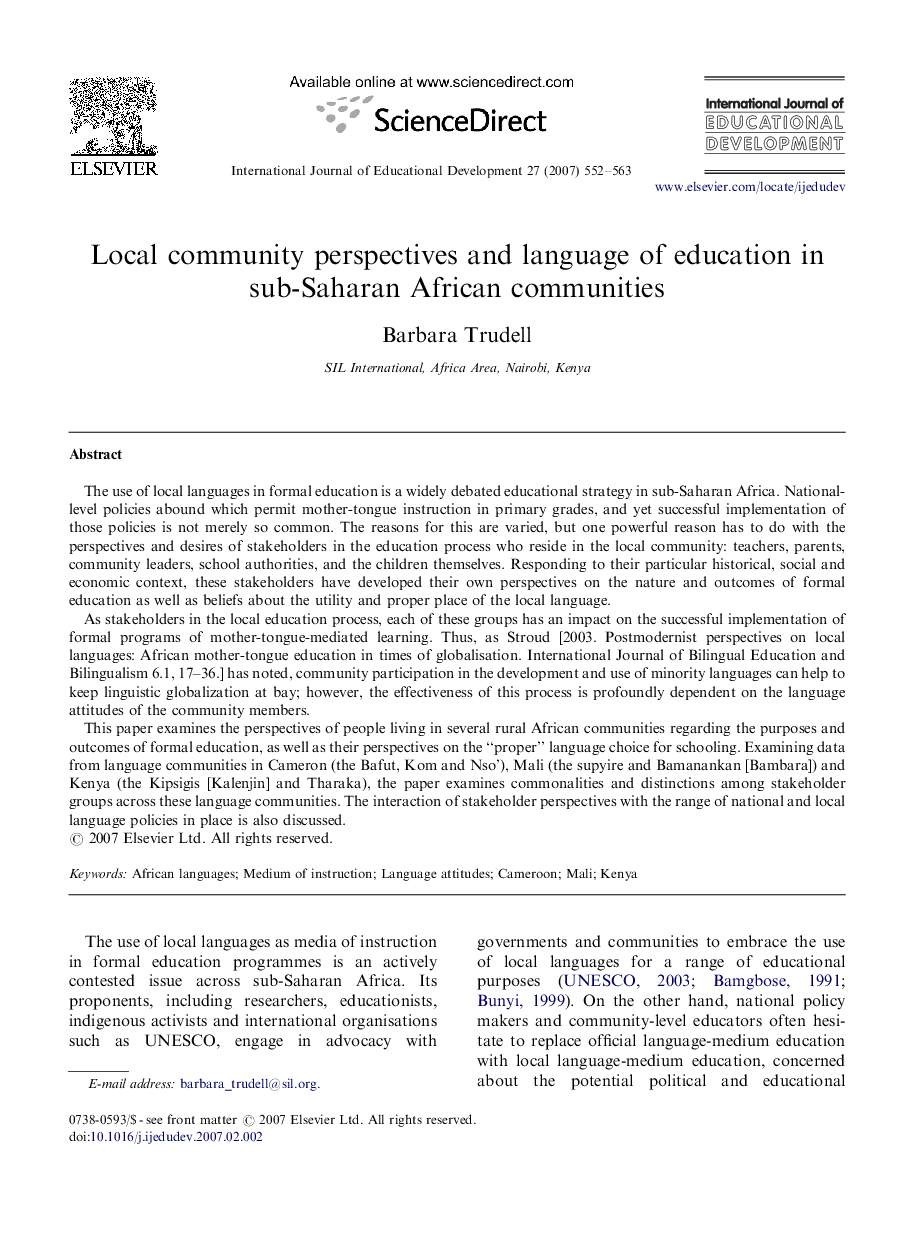| کد مقاله | کد نشریه | سال انتشار | مقاله انگلیسی | نسخه تمام متن |
|---|---|---|---|---|
| 356729 | 1435203 | 2007 | 12 صفحه PDF | دانلود رایگان |

The use of local languages in formal education is a widely debated educational strategy in sub-Saharan Africa. National-level policies abound which permit mother-tongue instruction in primary grades, and yet successful implementation of those policies is not merely so common. The reasons for this are varied, but one powerful reason has to do with the perspectives and desires of stakeholders in the education process who reside in the local community: teachers, parents, community leaders, school authorities, and the children themselves. Responding to their particular historical, social and economic context, these stakeholders have developed their own perspectives on the nature and outcomes of formal education as well as beliefs about the utility and proper place of the local language.As stakeholders in the local education process, each of these groups has an impact on the successful implementation of formal programs of mother-tongue-mediated learning. Thus, as Stroud [2003. Postmodernist perspectives on local languages: African mother-tongue education in times of globalisation. International Journal of Bilingual Education and Bilingualism 6.1, 17–36.] has noted, community participation in the development and use of minority languages can help to keep linguistic globalization at bay; however, the effectiveness of this process is profoundly dependent on the language attitudes of the community members.This paper examines the perspectives of people living in several rural African communities regarding the purposes and outcomes of formal education, as well as their perspectives on the “proper” language choice for schooling. Examining data from language communities in Cameron (the Bafut, Kom and Nso’), Mali (the supyire and Bamanankan [Bambara]) and Kenya (the Kipsigis [Kalenjin] and Tharaka), the paper examines commonalities and distinctions among stakeholder groups across these language communities. The interaction of stakeholder perspectives with the range of national and local language policies in place is also discussed.
Journal: International Journal of Educational Development - Volume 27, Issue 5, September 2007, Pages 552–563